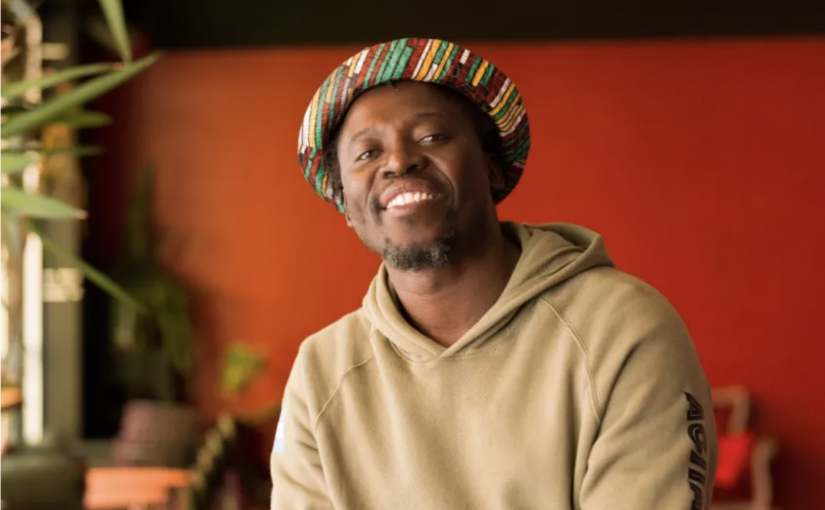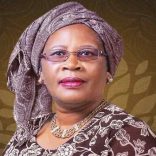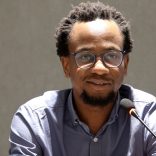Mozambique: Comings and Goings — Ricardo Rangel
Mozambique: The poetic and political world of Ídio Chichava takes the stage at the Musée d’Orsay

File photo: Beatrice Borgers
For Mozambican choreographer Ídio Chichava, dance is both a space of freedom and a platform for political struggle. On Thursday, the artist presented his performance “Sentido Único” at the Musée d’Orsay in Paris, showcasing how the poetic can also be political and how the freedom expressed on stage echoes the aspirations of Mozambique’s streets.
At a time when Mozambique is grappling with the aftermath of yet another tropical cyclone and ongoing repression against street protests, Mozambican artists like Chichava emphasize the creative power of freedom. For him, the stage is a place to transmit values, blending traditional rituals with contemporary inspirations. His movements transcend time, creating a “one-way direction” infused with the emotions and memories of the struggles still faced by Mozambicans today.
The performance “Sentido Único” was staged at the Musée d’Orsay auditorium as part of the “Carnets d’Esquisses” project, where Chichava and performers Osvaldo Passirivo and Mai-Júli Machado shared their vision.
Solidarity with the Streets of Mozambique
Amid Mozambique’s ongoing post-election protests—lasting two months and claiming at least 130 lives—Ídio Chichava expressed his solidarity with those marching in the streets. He noted that his dancers “don’t dance empty-handed but carry the emotions and memories of the Mozambicans who have died in the protests.” For him, the stage is not just a place of freedom but also one where he can express his indignation and say, “Enough.”
“As an artist, we have the opportunity to amplify our voices and speak through this microphone, so others understand that Mozambique needs help. There is a regime trying to keep the country in its grip, and we don’t want that. So, I say enough, as an artist, and we will continue to give voice to ourselves and our people. We need the world to stand by us and shout with us: Enough!” Chichava declared.
Dancing as the “One-Way Direction”
For Chichava, dance becomes the “one-way direction,” the only possible path in the face of harsh realities. “When I look at Mozambique’s history—colonial wars, civil wars—we Mozambicans have used our way of being as waves that cleanse our souls and memories. Everything translates into songs, and we will sing and dance,” he explained.
The piece “Sentido Único,” while created some time ago, has taken on new meaning in light of the current events in Mozambique. “Now we are on a one-way path, and as a people, I won’t go back. I won’t go back,” the choreographer affirmed. The performance explores the dynamics of two bodies that provoke, align, and misalign, standing side by side yet solitary, connecting and releasing, and ultimately growing together.
A Celebration of Milestones
“Sentido Único” was presented as part of the “Carnets d’Esquisses” series, which features performances by young choreographers monthly at the Musée d’Orsay and 7L Bookstore in Paris. Chichava’s invitation followed dancer Mai-Júli Machado’s performance at the 7L Bookstore. These initiatives are part of the Paris Dance Project, which brings dance to alternative urban spaces such as skating rinks and the roof of the Philharmonie de Paris, where Chichava also presented works under “La Ville Dansée.”
Benjamin Millepied, co-founder of the Paris Dance Project, praised Chichava’s artistry, saying:
“I met him at the Dance Biennale in Mozambique last year. I saw the piece ‘Vagabundus,’ and in just one hour, I felt I had come to understand this society and its history through dance, emotion, and song. It’s a total work of art with simple costumes, diverse bodies, and truly moving imagery. For me, it was the introduction to a great choreographer, and inviting him was essential.”
Looking Ahead
Ídio Chichava will return to Paris in February to perform with Millepied in “Plenum/Anima” and in April with his piece “Vejo Anjos que Atravessam o Sol na Minha Sala.”
As the artistic director of Converge+, a company offering free dance education to local communities in Mozambique, Chichava was recently awarded the Salavisa European Dance Award by the Calouste Gulbenkian Foundation. This recognition has allowed him to start planning Mozambique’s first independent choreographic creation studio on the outskirts of Maputo.
“The idea is to create a space for dancers with another level of creative capacity,” Chichava concluded.













Leave a Reply
Be the First to Comment!
You must be logged in to post a comment.
You must be logged in to post a comment.